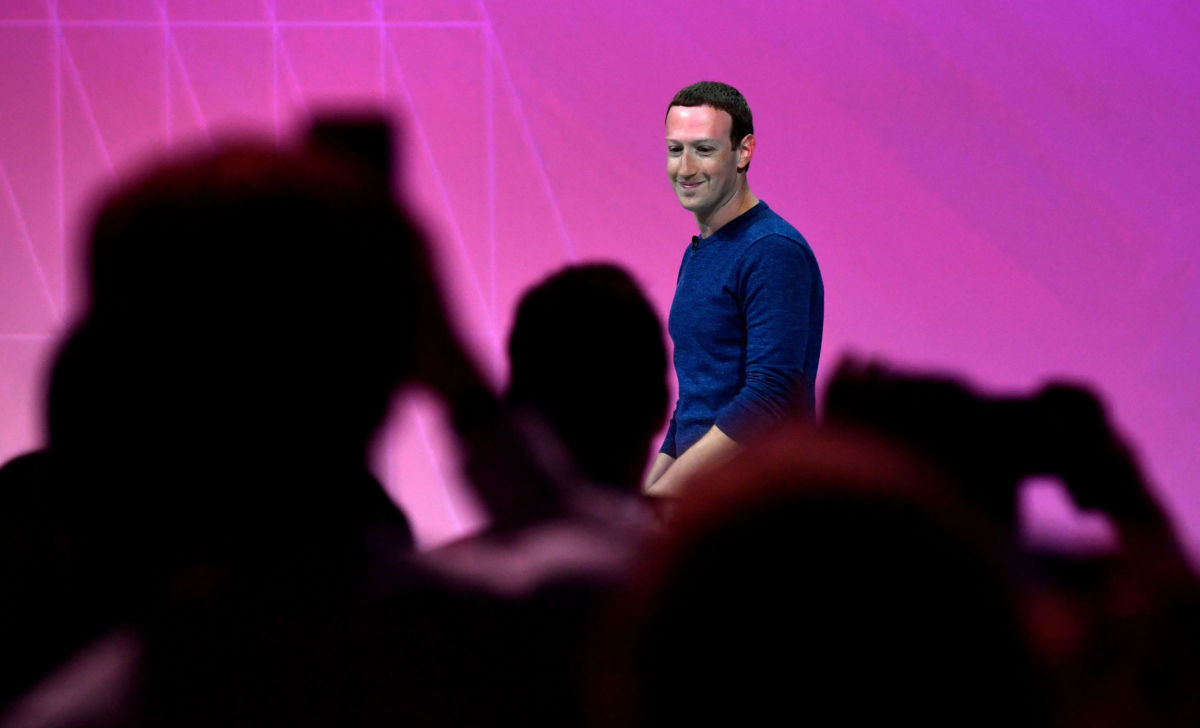Mark Zuckerberg announced on Wednesday that Facebook would be shifting its focus from publicly shared content to “privacy-focused communications.” Zuckerberg’s announcement comes as new numbers from Edison Research indicate that users have been steadily ditching the behemoth platform. According to Edison, Facebook has 15 million fewer users today than it did in 2017, with most of those losses occurring in the coveted 12- to 34-year-old group. Have years of scandal finally caught up with the company? Or have younger users simply gravitated toward other platforms? Either way, Zuckerberg is now floating a new vision for the company — one that may seem curious to those who have kept track of Facebook’s very public missteps.
“We’re building a foundation for social communication aligned with the direction people increasingly care about: messaging each other privately,” Zuckerberg said in an interview on Wednesday. The Facebook creator also wrote in a blog post that he believes “a privacy-focused communications platform will become even more important than today’s open platforms.” Refocusing Facebook on private communications may prove to be a hard sell, given the company’s history of data breaches and surveillance. From the Cambridge Analytica scandal to users discovering Facebook had access to more of their personal data than they had previously realized, public breakups with Facebook have often been rooted in the company’s handling of private information.
In February, MSNBC reported that Facebook’s security team mines the company’s network for posts or comments that may be construed as threatening Facebook’s offices or employees. Upon identifying a user that Facebook deems threatening, Facebook’s security team may monitor the user’s posts and direct messages, or even use the app to track the user’s location. People the company has identified as threatening may be placed on what employees call a “BOLO list.” (BOLO is a law enforcement term that stands for “Be on the lookout.”) When someone new is added to the list, security team members are sent the person’s name, photo and “general location” with a brief explanation of why they were added to the list. Some former employees have also been added to the BOLO list, sometimes without explanation.
While some former employees defended the BOLO list as a necessary security measure, other former employees called the program “Big Brother-esque” and noted that people could potentially be added to the list for something as simple as saying, “Fuck you, Mark” or “Fuck Facebook.” The MSNBC report also detailed a case in which the Facebook security team read through the direct messages of two interns after the interns failed to report for work. In that instance, the interns’ direct messages revealed that the employees were playing hooky, but the company insists their private messages were only checked out of a “legit concern” for the safety of the absent employees.
One former Facebook employee who spoke with Truthout isn’t buying that explanation. Jane (who asked that her real name be withheld for personal and professional reasons) worked at Facebook in 2016 and 2017. Jane told Truthout she was part of a group chat in a direct message thread that she later learned was being surveilled by the company. She says that a friend and former coworker who was part of a direct message conversation was subjected to “a tribunal of HR interrogation” and threatened with termination for “having made a vague reference to information that had just been given in a company announcement” in the direct message exchange.
Jane says that some of the company’s internal surveillance stems from its paranoia about leaks. “You go into a room and they tell you [company] information, and then unbeknownst to us, they were then immediately surveilling our communications to see what, if anything we might have leaked from the company announcement.”
Jane says she was not aware of Facebook’s practice of using smart phone data to track users it claims to have identified as threats, but was not surprised to hear that users had been tracked. “There is no internal ethical compass there, right? So it’s like there is no right or wrong,” she said, adding, “the entire operating method of the company is to do whatever you can get away with.”
In February, members of Congress wrote an open letter suggesting that Facebook may have misled users who have discussed their private health information in “closed” groups. While Facebook users who are not members of a closed group cannot see the information members share within the group, it appears Facebook may have made the shared information available to other companies — including insurance companies. A consumer complaint filed with the Federal Trade Commission in December states that users in the closed groups shared information “about substance use disorders, about the challenges of parenting transgender children, HIV status, and past history of sexual assault” that may have been compromised. Facebook’s defense of such practices is that users know they are sharing personal information under their own names. “Facebook is not an anonymous platform,” a Facebook spokesperson told Gizmodo, adding that “real-name identity is at the center of the experience and always has been.”
Given Facebook’s sordid history of exploiting its user data, it’s hard to imagine the company successfully reinventing itself as a “privacy-focused” platform. Consumers who want to send encrypted messages already have options like the Signal app to facilitate those conversations. And if there’s anything users don’t associate with Facebook, it’s secure communication.
Join us in defending the truth before it’s too late
The future of independent journalism is uncertain, and the consequences of losing it are too grave to ignore. To ensure Truthout remains safe, strong, and free, we need to raise $27,000 in the next 24 hours. Every dollar raised goes directly toward the costs of producing news you can trust.
Please give what you can — because by supporting us with a tax-deductible donation, you’re not just preserving a source of news, you’re helping to safeguard what’s left of our democracy.
